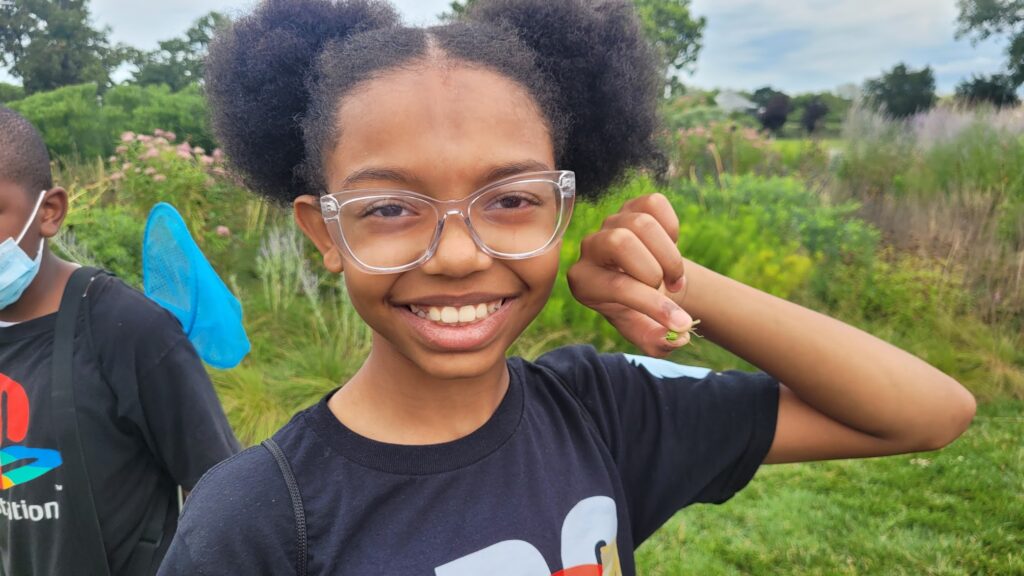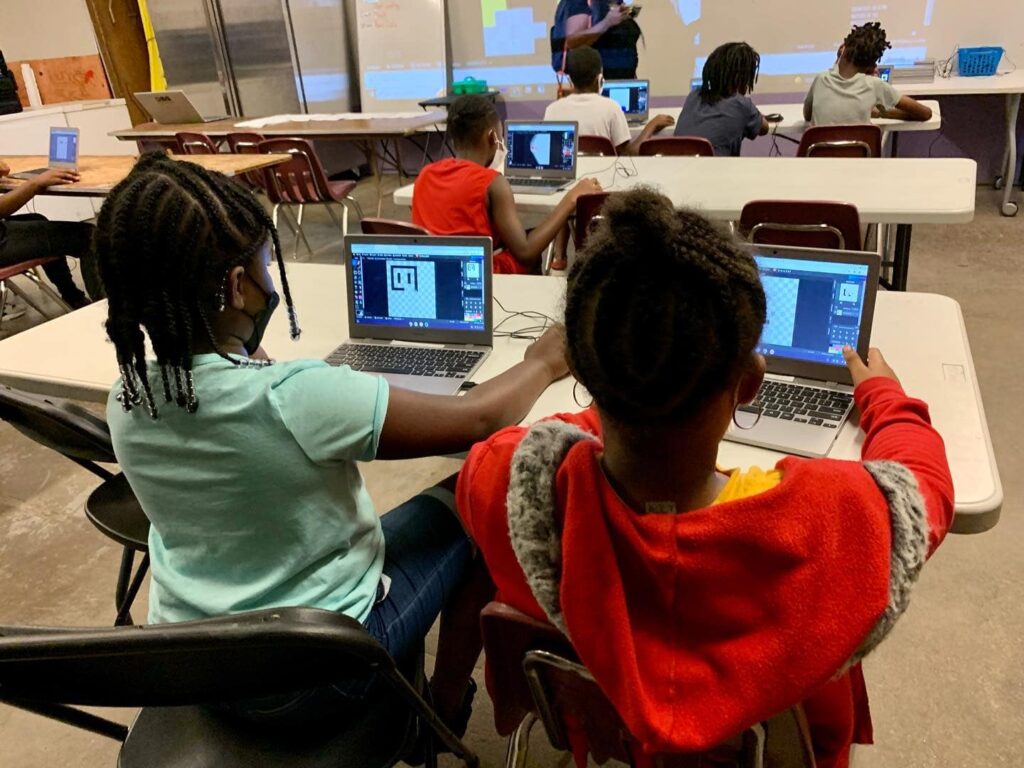Every weekday, elementary through high school students opt in to participate in a variety of classes in the DBG STEAM lab – studying everything from computer coding, robotics, and digital animation, to insects, weather patterns, animal life cycles, and more. Researchers want to learn what inspires students to enthusiastically “opt in” and how DBG’s holistic approach, which incorporates student voice in programming decisions, creates opportunities for student engagement.

The National Science Foundation (NSF) has awarded a $2 million grant to Purdue University and the Downtown Boxing Gym (DBG), a free, out-of-school-time program on Detroit’s east side, for a five-year research study to further evaluate, measure, and magnify the far-reaching impact of DBG’s innovative STEM-based programming.
Of note is DBG’s ability to engage students who are significantly underrepresented in STEM fields. Many graduates, like Asia Williams, an architect pursuing a graduate degree at the University of Detroit Mercy, are applying the skills learned at DBG in their career paths.

“We have such cool new things planned for fall,” says Remi Napier, DBG’s high-energy STEAM Lab Coordinator. “We’ll be investigating ‘spooky science’ with pumpkins and 3D printed haunted houses in October, creating space models and a stop-motion space movie, building shelters for stray animals and a ‘snowball thrower’ this winter, and designing our own airline using an aviation simulator. Our DBG chickens should also start laying eggs in the next few weeks.”
“Understanding how DBG encourages students to engage with non-mandatory STEM programming and how participation enables students to grow their STEM efficacy, interests, and identities, will allow us to refine and more broadly apply those methods,” said Amanda Case, Ph.D., an award-winning researcher and associate professor in the Department of Educational Studies at Purdue University’s College of Education. Dr. Case will serve as the study’s principal investigator.

“Without the initial interest in STEM and a sense of themselves as capable STEM learners, which DBG provides, students are less likely to pursue STEM activities, majors, or careers regardless of their potential in these subjects,” Dr. Case added. “The success of DBG’s program offers hope in addressing the nation’s ongoing struggle to keep pace with STEM education and innovation, a domain where the U.S. once led the world.”
Dr. Case first connected with the Downtown Boxing Gym in 2013 when she was an assistant professor of educational psychology at Wayne State University in Detroit. For more than a decade, she has studied DBG’s work and impact, noting the nonprofit organization’s individualized approach, mentorship methodology, and remarkable results.

Founded in 2007 by Khali Sweeney, DBG has supported thousands of students and families and measured long-term impact with alumni through age 25. The program breaks down barriers, delivering academic and non-academic intervention, athletics, mentorship, transportation, meals, diverse programming, and more, Monday-Friday, all year round to boys and girls ages 8-18.
Students stay and grow with DBG, remaining consistently in the program year after year through graduation and beyond. This long-term, individualized commitment allows for long-term measurement with data that reflects the success of the model. DBG has had a 100% high school graduation rate among all participating students for 16 straight years.

“We provide equitable access to education – a safe space, a resource hub and a launching pad to help young people achieve their dreams,” said Khali Sweeney, DBG’s founder and CEO. “Our students are the CEOs, innovators, and entrepreneurs of the future – the next great scientist, doctor, or engineer might be in our STEAM lab right now. This grant provides a huge opportunity to help scale our proven methods. DBG is grateful to the National Science Foundation and Purdue University for recognizing the impact of our program, supporting our students, and advancing DBG’s mission.”
DBG’s Executive Director Jessica Hauser will act as a co-principal investigator, serving as a liaison between DBG and Purdue researchers and assisting with data collection and analysis. Additional co-principal investigators include Signe Kastberg, Ph.D., professor of mathematics education and an endowed chair in elementary education at Purdue, and Nielsen Pereira, Ph.D., director of the Gifted Education Research & Resource Institute (GER2I) and associate professor of Gifted, Creative and Talented Studies at Purdue. Graduate students and other members of the DBG team will also participate in the research study.

“The NSF grant will act as a catalyst as DBG works to expand our campus, programs, and student body, and we explore opportunities for results-driven replication and scale,” said Hauser. “We are thankful to Dr. Case for her long standing commitment to studying the Downtown Boxing Gym and its impact, and to the National Science Foundation and Purdue University for lifting up our work. We’re excited to dig in and do this important research that will have a profound and long-term impact on so many young lives.”

While highly successful and impactful, the current DBG STEAM lab is located in a repurposed garage within the boxing gym, lacking resources and modern amenities. Expansion plans to increase the number of students served and accelerate future programming and opportunities include a new 22,000 square foot state-of-the-art STEAM building to be built on an adjacent property within the DBG campus. (See renderings below.)


To learn more about DBG, support our mission, and help make our dream of a new STEAM building a reality, visit dbgdetroit.org.
